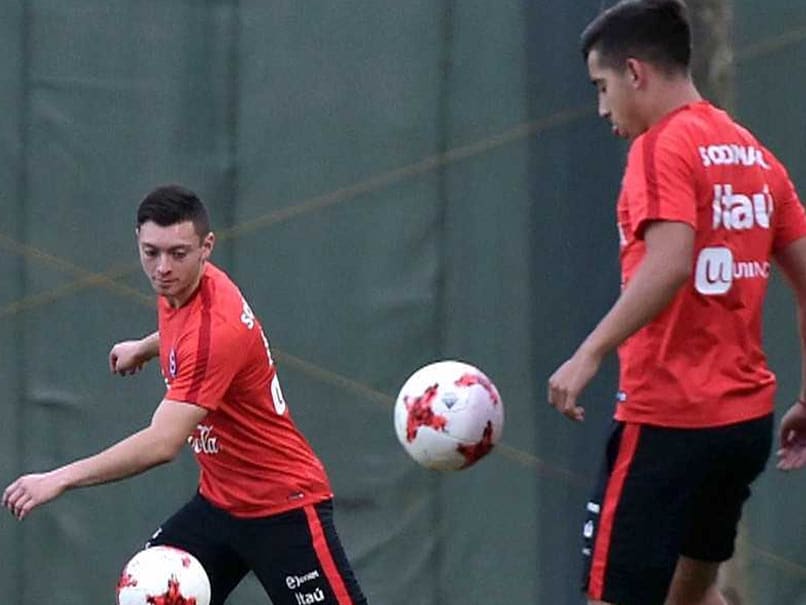FIFA U-17 World Cup: Chile Footballers Avoid Indian Food, Struggling To Cope With Humid Conditions In Kolkata
From keeping a tab on the players' hydration levels to avoiding India food, Chile is doing all that can be done in order to play to their full potential in the tournament.
- Edited by Sajal K Patra
- Updated: October 06, 2017 05:44 pm IST

Highlights
-
Chile play their first match against England on Sunday
-
The players are struggling to cope with the heat in Kolkata
-
Indian food is a no-no for Chileans, Kalazich said
The Chile U-17 football team management is leaving no stone unturned to adjust to the humid conditions in this part of the world ahead of their Group F U-17 World Cup encounter against England here on Sunday. From keeping a tab on the players' hydration levels to avoiding India food, Chile is doing all that can be done in order to play to their full potential in the tournament. It has been a real struggle for the Hernan Caputo-coached side to get used to the conditions here which are vastly different from what they encounter back home. The team landed in the city of joy on October 1 and the hot and humid conditions in Kolkata has not helped their chances in the upcoming World Cup. "We know that the weather of India and Chile are completely different. We can get hot weather but our humidity is very low. This time of the year it is colder than here and very dry," Chile team doctor Cesar Kalazich told reporters on Thursday.
Before coming to India, the Chileans trained in sauna-like conditions of 35-degree centigrade and a humidity of 95 percent.
"So what we did since we know that the time to adjust is around 10-14 days for most athletes. So since we did not have that much time we took the players to this centre in Santiago that does 'Bikram Yoga' which has conditions similar to here," the doctor said.
"We completed a week in same conditions there. We know that we did not adjust completely to that but at least we know how it would be here."
Bikram Choudhury is a Kolkata-born 'Hatha Yoga' teacher in Santiago.
Indian food is a no-no for Chileans, Kalazich said.
"As much as we like Indian food, they are not trying that since we are so close to the competition. We don't want to risk anything," he said.
Asked if he has made any dietary changes keeping in mind chances of weight loss due to loss of fluids, the doctor said: "We are concerned that that can be an issue.
"Our food is almost the same as there but some food we kept away and a lot of fluid (is being given to them) all throughout the day."
"Also testing the players (whether they are dehydrated or not) by weight changes, and training and in the urine as well.
"They started out with some difficulties but now its been four days and they are all well hydrated when they arrive for training and when they finish. So I am happy that is very happening now," he added
The colts from South America are always kept under the scanner so that they don't run out of steam amidst adverse conditions.
"We check that first thing in the morning, the weight when they wake up. This is for long-term weighing, more specifically on the body composition of changes of the players.
"And we weigh them before and after training. This has to do with fluid loss. We also check the density of the urine before and after training," Kalazich said.
(With IANS Inputs)